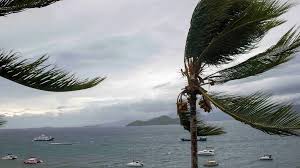
Cyclone Chido, described as the most powerful storm in nearly a century, struck the French Indian Ocean archipelago of Mayotte, leaving devastation in its wake. With winds exceeding 200 kph (124 mph), the cyclone caused widespread destruction, displacing residents and raising fears that the death toll could be in the thousands.
Météo-France labeled Cyclone Chido as the strongest storm to hit Mayotte in over 90 years. Housing, government buildings, and a hospital suffered extensive damage, while entire neighborhoods were reportedly wiped out. Prefect François-Xavier Bieuville told local media that the eventual death toll could be catastrophic.
Residents shared harrowing accounts of the aftermath. “Honestly, what we are experiencing is a tragedy. You feel like you are in the aftermath of a nuclear war,” said Mohamed Ishmael, a resident of Mamoudzou, Mayotte’s capital. “I saw an entire neighborhood disappear.”
The French Interior Ministry said it was too early to determine the precise number of casualties, highlighting the chaotic situation on the ground. French President Emmanuel Macron expressed solidarity with the victims, stating, “My thoughts are with our compatriots in Mayotte, who have gone through the most horrific few hours, and who have, for some, lost everything, even their lives.”
The traditional practice of burying the deceased within 24 hours in Mayotte has further complicated efforts to assess the toll.
Broader Impacts and Relief Efforts
Cyclone Chido continued its path of destruction, hitting northern Mozambique, where it caused additional damage to power and telecommunications infrastructure. Internet monitor NetBlocks reported severe disruptions in affected regions.
In Mayotte, hundreds of makeshift homes were destroyed, capsized police boats lay ashore, and coconut trees damaged many buildings. Concerns over access to food, water, and sanitation are mounting, with emergency response efforts underway.
The French government announced an air bridge from Réunion Island, another French territory, to deliver aid to Mayotte. This disaster marks a significant challenge for Prime Minister François Bayrou, who was appointed just days before the cyclone struck.
Historical Context of Mayotte
Mayotte, located nearly 8,000 kilometers from Paris, has faced decades of gang violence, social unrest, and economic challenges. Over 100,000 undocumented migrants reside on the island, fleeing poverty in neighboring Comoros.
More than 75% of Mayotte’s population lives below the French poverty line. Earlier this year, a severe water shortage added to the region’s woes.
Colonial History
France colonized Mayotte in 1843 and annexed the entire Comoros archipelago in 1904. While Comoros gained independence in 1975, Mayotte chose to remain a French territory, a decision that continues to shape its identity and struggles today.
As Mayotte grapples with the aftermath of Cyclone Chido, the focus remains on rescue and relief efforts to address the immediate humanitarian crisis and the long-term recovery challenges.
Sources By Agencies


